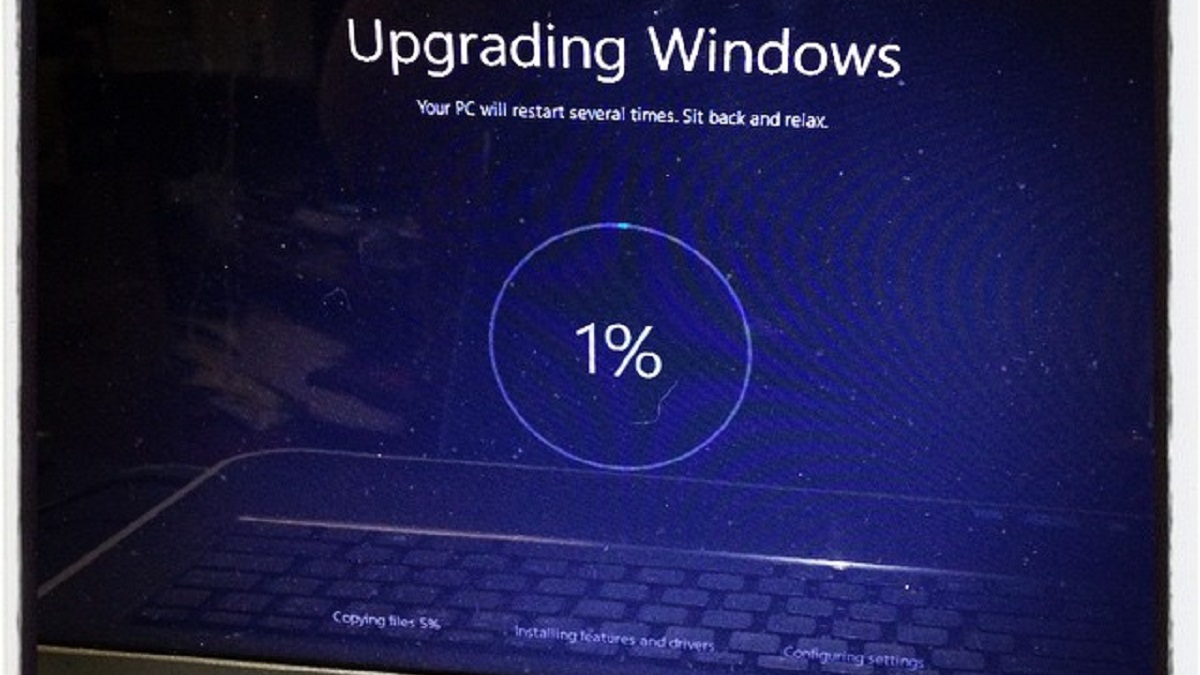
The big day for Microsoft is almost here. The company promised to release Windows 11 on October 5, 2021. While the OS will be available as an “easy upgrade”, a report claims nearly 50 percent of PCs that businesses use, still remain incompatible.
The corporate world is inevitably headed towards fragmentation. On one hand, there will be PCs running the shiny new Windows 11; while on the other hand, there will be an almost equal number of PCs running Windows 10.
The Windows OS ecosystem and the world of businesses will witness bipartisan fragmentation?
Microsoft promised to release Windows 11 on October 5, and the day is here. The company will release the OS as an “opt-in” update to Windows 10. This simply means anyone interested in leaving behind Windows 10 will have to search for Windows 11 upgrade and accept the same.
Even some PCs running Windows 7 can upgrade directly to Windows 11. Such generosity from Microsoft seems to paint a world where nearly every computer will run Windows 11. However, the reality couldn’t be further away.
Windows 11 Release Is Here: What To Expect? https://t.co/qlAsbITEZa
— DigiPilgrim (@digi_pilgrim) October 4, 2021
Microsoft has been far stricter with the System Requirements for Windows 11. Aspects such as Secure Boot and TPM 2.0 were recently joined by Virtualization-Based Security (VBS). Together, the trio could act as a huge spoilsport at the upgrade party.
Surprise new @windowsinsider build v 22471 today in the dev release ring. Downloading now. #Windowsinsiders #Windows11 #Windows10 #WIMVP #WIMVPBenelux @JenMsft @NorthFaceHiker @brandonleblanc @DJ_EddieL @amanda_lango @ErikMoreau @JamesvandenBerg pic.twitter.com/Q4E2rD01Hp
— Andre van den Berg – #WIMVP 🇳🇱 🐱👤 (@aavdberg) October 4, 2021
Such conditions have automatically ensured that a large number of capable computers will be incompatible with Windows 11. Incidentally, these PCs are reliably running Windows 10, and even Windows 7.
In the world of business, Windows 11 could be a much bigger disappointment. While individual consumers readily and frequently upgrade their hardware, the corporate world tends to drag its feet.
Made the cut! Happy Windows 11 release day folks. pic.twitter.com/BTFCp2Jzia
— John-Daniel Trask (@traskjd) October 4, 2021
Businesses that need computers for non-complex office work are quite reluctant about upgrading software, let alone hardware. Incidentally, there are thousands of older PCs that are currently running Windows 10. But these computers will most likely fail the updated PC Health Check app.
A new report suggests that just 44.4 percent of business computers meet CPU requirements, while only 52.55 percent have an activated TPM 2.0 chip. In simple words, nearly half of the computers that businesses offer their employees, are incompatible with Windows 11, at least on the launch day of the OS.
Computers running Windows 10 and Windows 11 will have to work side-by-side:
The report, compiled by Lansweeper, analyzed 30 million Windows computers in more than 60,000 companies and organizations. Hence it is quite comprehensive.
Research: over 55% of workstations are not capable of being upgraded to Windows 11.
Data provided by Lansweeper.https://t.co/QRjIIkapsT pic.twitter.com/FC5xnJNB9N
— Anna-Emmanuelle Glivinska (@emma_glivinska) October 1, 2021
Still, there are several computers that may have the TPM 2.0 chip which currently lies deactivated. System Administrators do have a lot of work cut out for them. Many would soon be going desk to desk to enter the BIOS or UEFI and activate the Secure Boot as well as TPM module.
I just ran this as a daily driver about a month ago, and I can say with some confidence that "release" is a strong word for what category of stability and functionality Windows 11 is at right now https://t.co/UhZTZ4BaK7
— e(Ag)le (@SilverEagleDev) October 4, 2021
Despite this, there will still be thousands of PCs that will have to run Windows 10. Microsoft has indicated that it will support the OS till 2025. Simply put, PCs running Windows 11 could run alongside computers running Windows 10 for the next few years at least.
Microsoft has promised to offer two Cumulative Feature Updates for Windows 10, while Windows 11 gets one such update every year. It would certainly be interesting to see the distribution of features and functions between them.


